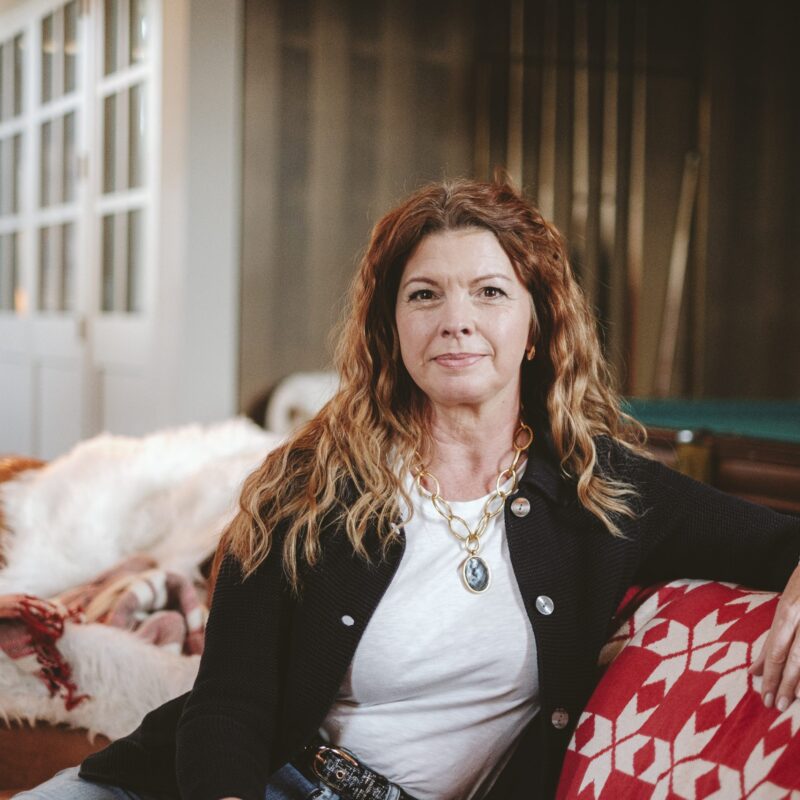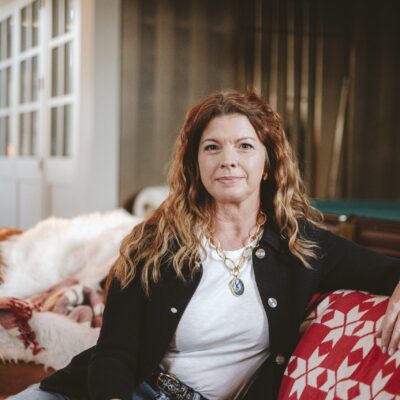“I just look at the color,” says Dave Collins, “and I pretty much have an idea of whether the grapes are ready.” Collins, who makes wine at Breaux Vineyards in Loudoun County, is bounding out of an ATV amidst rows of Sauvignon Blanc grapes. It’s two days before he plans to harvest those white wine grapes and he pulls a few golden berries from a cluster. “I’m looking for pineapple—fruity,” he says. A second cluster, a few rows up, produces a grassier, more acidic taste—and the color tends a bit more towards sea green. “I know these vines, know when they were planted. These are another 10 days out,” he says, and then pauses. “But imagine the fruitiness of that one with this one,” and then trails off, picturing the new Sauvignon Blanc vintage.
|
Fifteen miles from the West Virginia line, the gorgeous Breaux Vineyards attracts tourists from there, Maryland, greater-D.C., and of course, Loudoun County. Winemaker Dave Collins oversees 102 contiguous acres planted with 18 varieties of grapes. |
Scattered around Virginia is a league of early generation winemakers who espouse the maxim that great wine is made in the vineyard, and Collins is among them. Gangly and enthusiastic once he warms to the idea of an interview, Collins describes the characteristics of Breaux’s 102 acres of vines (a total 18 varietals) the way a doting parent might speak of his children. “You can’t be too close to the wines,” he says.
Intimate as he is with the picturesque, Tuscany-like property, nonetheless Collins’ career includes a “lost decade.” Collins worked on the 400-acre property in the mid-1980s when previous owners asked him to experiment with a couple acres of grape vines. Shortly after he completed that project, he switched gears to learn winemaking from Lew Parker at nearby Willowcroft Winery. When the property changed hands to Outer Banks real estate tycoon Paul Breaux, he propositioned Collins to return to the land he had first planted with a vision of a sweeping winery operation that, some 15 years later, seems handsomely realized. “Paul Breaux turns sand into gold,” Collins says. “He learned how to take the rich, loamy Loudoun County soil and do the same thing.”
Breaux produces between 8,000 and 10,000 cases annually, with many bottle prices hovering around the $20 mark. One noteworthy exception on the high end is the limited release 2002 Nebbiolo ($48), a smoky symphony of black licorice, tobacco and dark cherry, which is the Breaux wine that first captured my attention at a recent, otherwise dull, D.C.-area wine festival. But not only is the price point an attention-getter, so is Breaux’s strategy to delay release of its wines. Indeed, the current cellar door red vintages are no younger than 2005. “We’re not going to release ’07s in ’08, or ’08s in ’09, like everyone else in Virginia is doing,” Collins says.
Nonetheless, Breaux is sensitive to the perception that Virginia wines cannot compete in retail shops because of their price point. Accordingly, Collins also makes a Merlot-based value wine that sells in a local Sam’s Club along with some NoVa wine shops and restaurants. Bottled under the Equation label and selling at $15 in Breaux’s tasting room, the soft, slightly spicy table wine aims to square off with inexpensive wines from Chile and California that have a considerably greater carbon footprint and, in some cases, questionable growing practices. And the affordable price tag inspires another kind of pride in the opinionated winemaker. “I’m happy I can create a product that’s competitive,” he says.
Still, Collins has high expectations that, with the right kind of winemaking, Virginia wines can vie on many stages. To the notion that the wine-drinking public still scoffs at a “Made in VA” label, he says perceptions are changing. “Loudoun County has wonderful soils and climate, and I still feel that Virginia, from Loudoun County to Charlottesville, is in a zone that can grow a wide variety of vinifera.”






